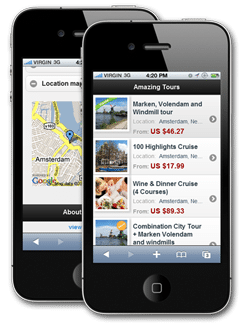

To turn Bookings on or off, see Turn Bookings on or off for your organization. To get started, see Get access to Microsoft Bookings.

These pages allow for versatility and the ability to customize a Bookings calendar to fit the diverse needs of the person or organization. This web-based scheduling page can be shared via a direct link, your Facebook page, and even through link embedding within your website.Ī web app that contains a set of web-based, business-facing pages where Bookings calendar owners and administrators within an organization can define appointment types and details, manage staff schedules and availability, set business hours, and customize how appointments are scheduled. Bookings is also available as an app within Teams, which allows you to create Bookings calendars, assign staff, and both schedule new and manage existing appointments without ever leaving Teams.Ī booking page where your customers and clients can schedule appointments with the staff member who should provide the service or run the appointment. Each appointment booked as an online meeting creates a unique meeting link that is sent to attendees so they can join via a web browser, phone dial-in, or the Skype or Teams app. Use Bookings to make your organization’s meetings virtual with online meetings via Microsoft Teams and Skype for Business. Within the burgeoning field of ethnographically informed studies on cell phone use in Africa and beyond, Archambault’s rich account stands out for conveying how, in Mozambique today, cell phone use not only reshapes young people’s frustrations and expectations, but also transforms broader motions and emotions of relatedness and living together in new and unexpected ways.The Bookings calendar is a mailbox in Exchange Online. This book transcends such narratives to offer a much more delicate ethnography of the complex ways in which young Mozambican men and women use cell phones to ‘cruise’ through uncertain times and give renewed form to deeply rooted regimes of truth, being and relating – what Archambault terms ‘arsenals of pretense’, revealing in the process what intimacy, respect, discretion and affection mean in postsocialist postwar Mozambique.

" Mobile Secrets, about the uptake of cell phones in Inhambane, a secondary town in Mozambique, resolutely moves beyond the well-known ‘Africa rising’ mantra, the praise for cell phone technology as a tool to enhance ‘development’, or the celebration of the liberating capacity of mobile technology so common in the post-Arab Spring literature. Read More about Mobile Secrets Read Less about Mobile Secrets They can pay via credit card, debit or PayPal. Online Payment Processing Eliminate no-shows by asking clients to pay a deposit online when booking their appointment. As Mobile Secrets shows, Mozambicans have harnessed the technology not only to acquire information but also to subvert regimes of truth and preserve public secrets, allowing everyone to feign ignorance about the workings of the postwar intimate economy. Bookedin sends automatic confirmations and reminders including options to confirm, cancel, rebook, custom messaging and more. In their hands, the phone has become a necessary tool in a wider arsenal of pretense-a means of creating the open-endedness on which harmonious social relations depend in postwar postsocialist Mozambique.
#Booked in mobile plus#
Metro Jail includes a main jail facility plus a minimum security barracks, which provides inmate labor to parks. This facility houses an average of 1,500 inmates per day and is the detention facility not only for the county but for the city of Mobile as well. By engaging with young adults in a Mozambique suburb, Archambault shows how, in their efforts to create fulfilling lives, young men and women rely on mobile communication not only to mitigate everyday uncertainty but also to juggle the demands of intimacy by courting, producing, and sustaining uncertainty. The Mobile County Sheriff’s Office is responsible for the Mobile County Metro Jail. With Mobile Secrets, Julie Soleil Archambault offers a complete rethinking of how we understand uncertainty, truth, and ignorance by revealing how better access to information may in fact be anything but desirable. Many anticipated that in Africa, where most have gone from no phone to mobile phone, improved access to telecommunication would enhance everything from entrepreneurialism to democratization to service delivery, ushering in socio-economic development. Now part and parcel of everyday life almost everywhere, mobile phones have radically transformed how we acquire and exchange information.


 0 kommentar(er)
0 kommentar(er)
